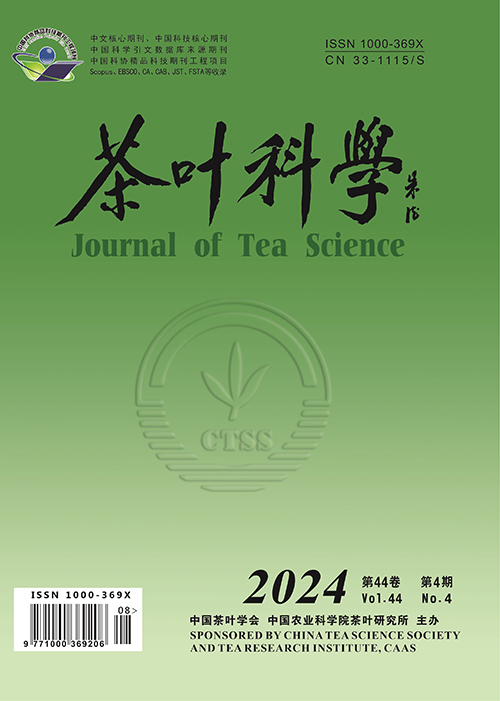红茶的魔力:人类健康和治疗潜力的全球研究综述
引用次数: 17
摘要
茶是世界上第二大最常消费的最便宜的非酒精饮料,红茶是产量最大的类型,其次是绿茶和乌龙茶。本文的风险在于关注与红茶消费有关的健康影响的最新研究成果,并得出其治疗潜力的一些未来研究方向。综上所述,提供了关于红茶发酵过程、成分和质量的全面信息。红茶的几个主要有益作用是抗氧化活性、抗溃疡作用、抗炎作用、抗菌特性、抗癌特性、抗诱变活性,以及对血压、冠心病和心血管疾病、动脉粥样硬化、氧化损伤的减弱或降低作用。此外,红茶还被发现可以提高胰岛素活性,帮助治疗哮喘,延缓白内障,保持体液平衡,骨骼健康和牙齿健康,改善平均体重指数和体重,防止细胞DNA损伤,抑制HIV,降低应激激素水平等。对氧化过程相关的人类生物合成途径的潜在影响以及对认知表现的潜在影响也被讨论,并引用了各种研究成果。关键词茶花;红茶;多酚;人类健康;治疗本文章由计算机程序翻译,如有差异,请以英文原文为准。
Black Tea Magic: Overview of Global Research on Human Health and Therapeutic Potentialities
Tea is the second most frequently consumed cheapest non-alcoholic beverage worldwide, black tea is the most produced type, followed by green and Oolong tea. The venture of this paper is to focus on the latest research efforts regarding the health effects related to consumption of black tea and derive some future research directions towards its therapeutic potentialities. With a view of the above, comprehensive information on the fermentation process, composition, and quality of black tea has been provided. Several major beneficial roles of black tea are antioxidant activity, antiulcer effect, anti-inflammatory effect, antimicrobial properties, anticancer properties, antimutagenic activity along with the attenuating or reducing effects on blood pressure, CHD and cardiovascular disease, atherosclerosis, oxidative damage are important. Moreover, black tea has been found to enhance insulin activity, help in treating asthma, retard cataract, maintain fluid balance, bone health and dental health, improve mean body mass index and body weight, prevent cellular DNA damage, inhibits HIV, lower stress hormone levels, etc. The potential effect on human biosynthetic pathways related to oxidative processes as well as that on cognitive performance has also been discussed with citation from various research findings. Keywords Camellia sp; Black tea; Polyphenols; Human health; Therapy
求助全文
通过发布文献求助,成功后即可免费获取论文全文。
去求助
来源期刊
CiteScore
1.50
自引率
0.00%
发文量
2558
期刊介绍:
The Journal of Tea Science was established in August 1964, approved by the Publicity Department, CCCPC. Its title was inscribed by Zhu De, the chairman of CCCPC. It was discontinued during the Cultural Revolution in 1966, and it was reissued in August 1984, approved by the State Scientific and Technological Commission.Academicians Chen Zongmao and Liu Zhonghuaof the Chinese Academy of Engineering served as the directors of the editorial board. The Journal of Tea Science is managed by the China Association for Science and Technology,sponsored by the China Tea Science Society and the Tea Research Institute of the Chinese Academy of Agricultural Sciences, and edited and published by the editorial office of the Journal of Tea Science. It is the only one of Chinese core journals in the field of tea science that is included in the core library of the Chinese Science Citation Database.Its Domestic Unified Serial Number is CN 33-1115/S, its International Standard Serial Number is ISSN 1000-369X and its International publication name code is CODEN-CHKEF4. At present, the Journal of Tea Science is a bimonthly publication, published in the middle of the month, with a book size of 16.

 求助内容:
求助内容: 应助结果提醒方式:
应助结果提醒方式:


